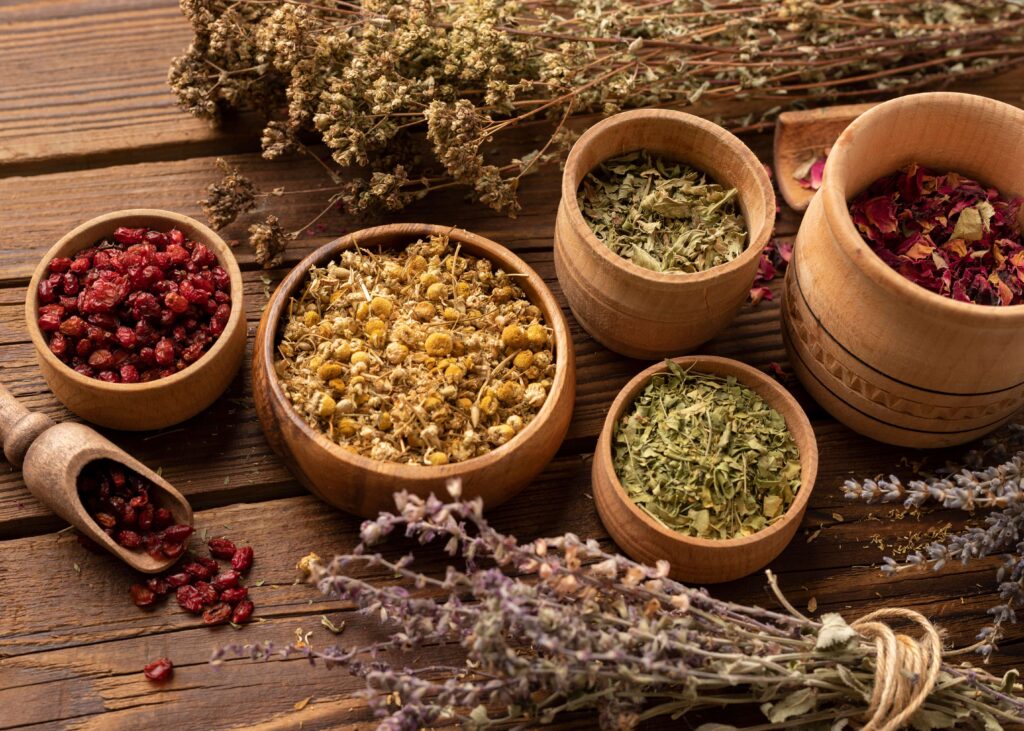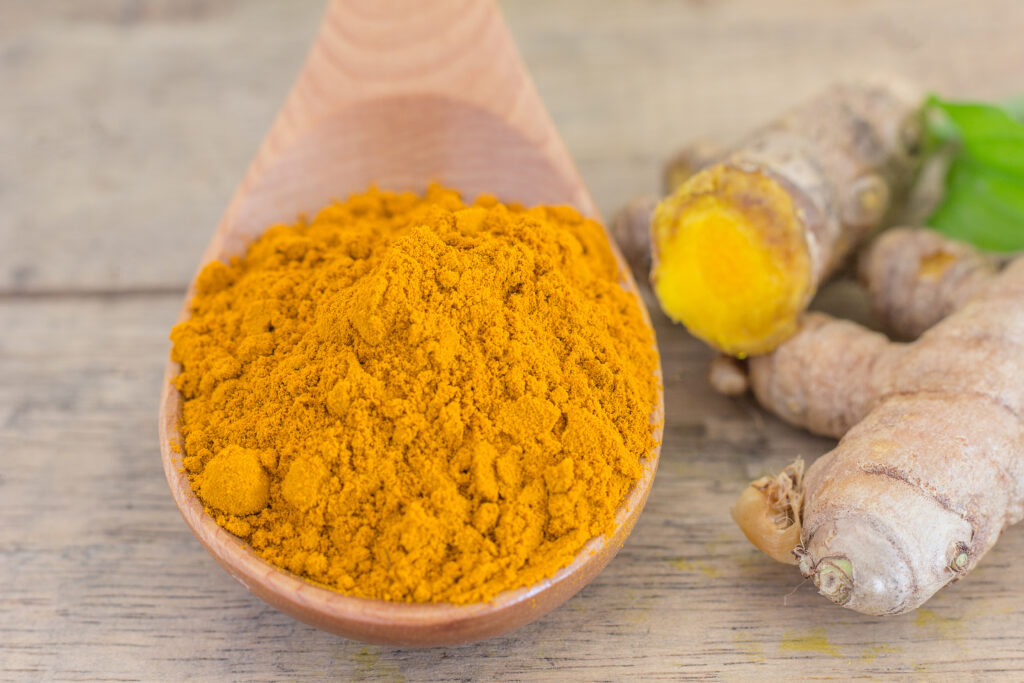Ayurvedic Herbs For A Healthy Life
- Home
- /
- Ayurvedic Herbs & Ingredients
- /
- Ayurvedic Herbs For A...

An ancient Indian medical practice is called Ayurveda. By keeping the mind, body, and spirit in harmony and focusing on avoiding illness instead of treating it, it seeks to maintain health and wholeness. It utilises a comprehensive strategy integrating nutrition, exercise, and lifestyle modifications.
An essential component of the Ayurvedic medical system is the Ayurvedic herb. Since ancient times, we have used these herbs to cure various illnesses, foster mental clarity, increase immunity, and promote healthy skin, hair, and other body systems.
Ayurveda allows for treating the patient as a whole, not just their afflicted parts. In Ayurveda, thousands of plants with active components originating from leaves, roots, flowers, and bark have been utilised to heal disease. In addition, herbs can bring the body and mind into harmony.
Ayurvedic Herbs With Their Great Benefits
Essential elements of this strategy also include the herbs and spices used in Ayurveda. They are believed to give a range of health advantages, including better digestion and mental health, and help shield your body from sickness.

Here are some of the best Ayurvedic herbs for a healthy life:
1. Ashwagandha
Ayurvedic medicine, a conventional Indian style, frequently employs the herb Ashwagandha. It is said to improve brain function, lower stress and anxiety, and strengthen the immune system, among other health advantages.
It is also believed that Ashwagandha has anti-inflammatory qualities, which may aid in lessening pain and inflammation in the body. It can be consumed with tea or as a dietary supplement in capsules or powder. While Ashwagandha may have potential health advantages, it should be used cautiously and under the guidance of a trained healthcare professional.
2. Neem
Azadirachta indica, neem, is a plant frequently utilised in Ayurvedic cures. It is said to provide a variety of health advantages, such as the capacity to strengthen the immune system and enhance skin health.
Neem can be administered topically as an oil, ointment, or supplement in capsules or powder. Traditional Ayurvedic treatments for the skin and hair also engage it. Neem may provide potential fitness advantages, but it should only be taken with care and under the guidance of a trained healthcare professional.
3. Amalaki
Fruits like Amalaki, usually called Indian gooseberries, are frequently utilized in Ayurvedic treatment, a conventional Indian style of medicine. It is said to provide a variety of health advantages, including antioxidant characteristics, the capacity to support healthy skin, and the capacity to enhance digestion.
Amalaki is also believed to enhance the immune system and may help lower bodily inflammation. The fruit can be consumed fresh, dried, or as a supplement, as a capsule or powder. While Amalaki may have potential health advantages, it should be taken carefully and under the guidance of a licensed healthcare professional.
4. Shatavari
Ayurvedic herbs, a conventional Indian system of medicine, frequently employ the herb Shatavari. It is said to provide a variety of health advantages, such as the capacity to lessen tension and anxiety and to have a relaxing impact on the body.
Shatavari benefits the reproductive system, making it possible for women going through menopause or having trouble becoming pregnant. It can be consumed with tea or as a dietary supplement in capsules or powder. While Shatavari may have potential health advantages, it should be taken cautiously and under the guidance of a licensed healthcare professional.
5. Shankhapushpi
A plant called Sankhapushpi is frequently used in Ayurvedic therapy, a traditional Indian style. It is said to provide a variety of health advantages, including a favourable impact on the brain and the capacity to enhance memory and focus.
Additionally, it is believed to have a relaxing impact on the body, and Sankhapushpi may help lower tension and anxiety. It can be consumed with tea or as a dietary supplement in capsules or powder. While Shankhapushpi may have potential health advantages, it should be taken cautiously and under the advice of a licensed healthcare professional.
6. Brahmi
In Ayurvedic medicine, Brahmi, also known as Bacopa Monnieri, is a popular plant. It is thought to improve brain function and enhance memory and focus. Therefore, Brahmi is frequently consumed as a dietary supplement in capsules, powder, or tea.
Additionally, it is used in age-old Ayurvedic scalp and hair remedies. Therefore, it should be taken with prudence and under the guidance of a licensed healthcare professional.
7. Guggulu
Guggulu, sometimes called Commiphora Mukul, is frequently used in Ayurvedic remedies. It possesses anti-inflammatory qualities and might help ease bodily discomfort and inflammation.
Guggulu can be used topically as an oil or ointment or ingested as a supplement in the form of capsules or powder. Traditional Ayurvedic treatments for the skin and joints also employ it. However, as Guggulu may have many health benefits, it should be used cautiously.
8. Turmeric
Spices like turmeric are frequently used in cooking, especially in Middle Eastern and Indian dishes. It is indigenous to the Indian subcontinent and a member of the ginger family.

Bright yellow in colour, turmeric has a warm, somewhat bitter flavour. However, it is frequently used to flavour and colour food, providing various health advantages. For example, Curcumin, a substance found in turmeric, is known to have anti-inflammatory qualities and can aid in lessening pain and inflammation in the body. Additionally, it is said to possess antioxidant capabilities, which may assist in fostering healthy skin and enhancing digestion.
There are several ways to get turmeric, including fresh, ground, and as a supplement in the form of capsules or powder. While turmeric may offer potential health advantages, it should be used cautiously and under the guidance of a trained healthcare professional.
9. Triphala
Amalaki, Bibhitaki, and Haritaki are the three Ayurvedic herbs that produce Triphala. It is frequently used in Ayurvedic medicine and provides several health advantages, including enhancing intestinal function and having a favourable impact on digestion.
Triphala is frequently consumed as a dietary supplement in capsules, powder, or tea. Additionally, it is utilised in age-old Ayurvedic digestive system medicines. While Triphala may have potential health benefits, it should be used cautiously and under the guidance of licensed healthcare.
10. Liquorice
In Ayurvedic medicine, liquorice, or Glycyrrhiza glabra, is a common plant. It provides a variety of health advantages, including the capacity to lower stress and enhance respiratory system performance.
Liquorice is frequently consumed as a supplement in capsules, powder, or tea. Additionally, it is utilised in conventional Ayurvedic respiratory and digestive medicines. While liquorice may offer some possible health benefits, it should be used with alert under the guidance of a trained healthcare professional.
How To Use Ayurvedic Herbs For Best Results?
Ayurvedic herbs may be used in various ways to get the finest outcomes.
Here are some pointers to use ayurvedic herbs for the best results:
- Speak with professionals: Before utilising Ayurvedic medicines, speaking with a registered healthcare professional, such as an Ayurvedic physician or a licensed naturopathic doctor, is vital. They can assist you in figuring out the amount and frequency of usage that is best for your particular requirements.
- Observe the package’s directions: Ensure you thoroughly read and adhere to the product label’s directions. This will make sure you’re utilising the herb safely and appropriately.
- Use the herb regularly: Use it consistently as instructed if you want the most significant benefits. As the help of certain herbs might often take time to become apparent, this may call for some self-control and endurance.
- Take the herb as directed: Ayurvedic herbs come in various preparations, including fresh, dried, powdered, capsules, and tablets. Please select the most suitable and appropriate form for you, then constantly apply it.
- Herb’s flavour and scent: Take into account the herb’s flavour and fragrance. Ayurvedic herbs are frequently picked for their flavour and aroma since it is thought that these characteristics have a therapeutic impact on the body. Please pay attention to the herb’s flavour and scent, and use it.

Conclusion
Ayurvedic herbs have been utilised to support health and well-being in traditional Indian medicine for ages. Many Ayurvedic herbs are said to provide a variety of health advantages, including lowering blood pressure, increasing the immune system, lowering pain and inflammation, and lowering stress and anxiety.
To ensure safe and efficient usage, it is crucial to get the advice of a trained healthcare professional before using any ayurvedic herbs. You can also consider Arogyadham Health, which provides the best ayurvedic treatment to treat your disorders. Ayurvedic herbs like Shikakai and Ashwagandha offer powerful, natural solutions for overall well-being. Shikakai is widely known for nourishing hair, acting as a gentle cleanser and conditioner, while Ashwagandha helps reduce stress, boost energy, and strengthen the immune system. These herbs reflect the holistic nature of Ayurveda, which focuses on restoring balance between the mind and body.
Call: +91-7300783206
Email:info@arogyadham.in






